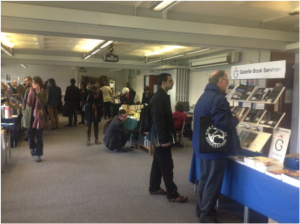The Department of Classics held a lively conference on ‘Philology and Empire, 1700 to 1900’, on Wednesday, 27 June 2012, in Reading. The conference was held in conjunction with the Network on Ancient and Modern Imperialisms (follow this link for more information: http://www.reading.ac.uk/classics/imperialisms/) , which is based in the Department.
The event was well attended and drew an international audience of students and scholars. The conference aimed to look at the period from 1700 to 1900, which is crucial for the development of scholarly philology and imperial expansion.
Speakers covered such topics as the nexus between theology, philology, and empire in the Victorian period; the teaching of Latin in West Africa; the construction of Sanskrit as a classical language in the late 18th and early 19th centuries; the British colonial linguistic survey of India; and the evolving relationship between philology and empire from the ancient to the modern eras. A central feature of the conference was its comparative framework, as it brought together scholars who work on a variety of languages, literatures, and histories.
The speakers/respondents included the following:
- Simon Goldhill (Cambridge)
- Barbara Goff (Reading)
- Phiroze Vasunia (Reading)
- Javed Majeed (King’s College, London)
- Daniel Selden (UC Santa Cruz)
- Peter Kruschwitz (Reading)
- Pedro López Barja de Quiroga (Santiago de Compostela)
- Tim Whitmarsh (Oxford)
The conference was co-sponsored by the Department of Classics; the Faculty of Arts, Humanities and Social Science; the Network on Ancient and Modern Imperialisms; and the Jowett Copyright Trust (Oxford).




